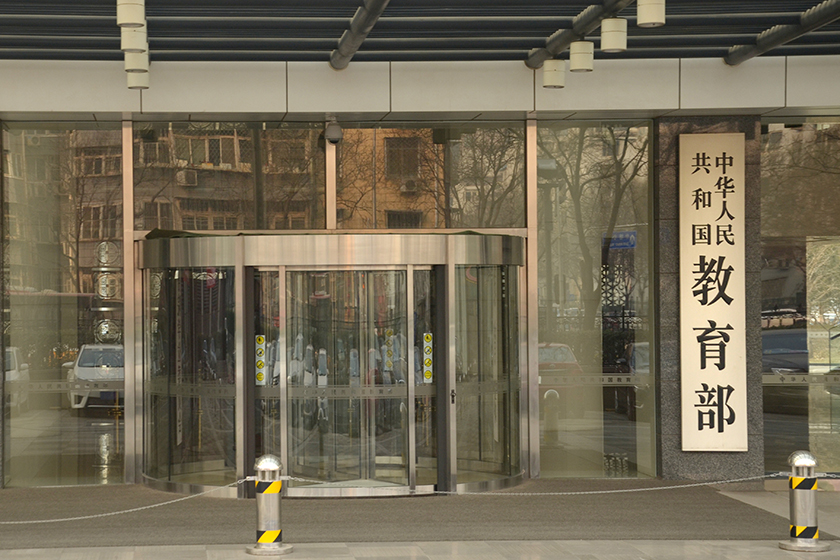




Academic misconduct continues to be a prevalent issue in the education systems of China and India. In China, a recent report by China Digital Times reveals that academic misconduct in Chinese universities has reached alarming levels. The Chinese Ministry of Education has instructed universities to conduct self-investigations into retracted research papers, and several education departments across the country have issued related notices. In 2023 alone, over 10,000 research papers were retracted globally, with Chinese papers accounting for approximately 75% of the total retractions. The reasons for retractions include unreliable data, peer review fraud, paper mills producing fake papers, and plagiarism. One of the subsidiaries of Wiley, Hindawi, retracted over 8,000 papers, with more than 8,200 of them involving Chinese authors. The total number and proportion of retracted Chinese papers are expected to change. The report also highlights the increasing audacity of intermediaries involved in the paper mill industry, who advertise and promote papers to researchers. The relationship between publishing giants and paper mills is symbiotic, with publishers prioritizing profits and paper mills meeting researchers' publication demands. The challenges in addressing academic misconduct include low cooperation at the grassroots level, unclear regulations regarding social intermediaries and individuals involved in the buying and selling of papers, and a lack of effective and institutionalized measures. Meaningful reform is needed, focusing on improving the system as a whole. The report suggests that publishing giants and paper mills may collude, with publishers expanding their market reach and paper mills facilitating this expansion, resulting in both parties profiting. Researchers are advised to exercise caution when selecting publishing platforms and to advocate for national-level regulations that hold publishing groups accountable for their review processes. The report emphasizes the need for a comprehensive and institutionalized approach to effectively address academic misconduct. [a86de7c6]
In India, academic misconduct is also a prevalent issue. An article by The Citizen highlights the widespread cheating and bribery practices in Indian education. Cheating is normalized in village schools, and even in cities, students resort to private tutorials or cheat books to pass exams. Corruption in universities is also widespread, with students bribing for admission and invigilators accepting bribes to pass them. The shift to online learning during the COVID-19 pandemic has further increased academic dishonesty. Instances of cheating include students using the 'Chegg' app to copy answers and the establishment of fraudulent online universities. The article emphasizes the importance of academic integrity and the negative consequences of cheating and bribery. A recent case at Veer Bahadur Singh Purvanchal University involved students passing exams with incorrect and unrelated answers, leading to an investigation and suspensions. The article concludes by stating that cheating and bribery undermine the core idea of education and contribute to the downfall of civilizations. [ab160377]
Both China and India face significant challenges in addressing academic misconduct. While China grapples with the rampant production of fake research papers and the collusion between publishing giants and paper mills, India struggles with widespread cheating and bribery practices. Meaningful reforms are needed in both countries to improve the education systems and uphold academic integrity. [a86de7c6] [ab160377]
In Hong Kong, a cheating scandal has rocked the International Baccalaureate (IB) exams. The IB exams body has announced that it will investigate leaked test papers after evidence of cheating was found. The leaked papers were downloaded over 45,000 times, and a small number of students were found to have engaged in 'time zone cheating', where they shared questions with students in different time zones who had yet to take the exams. Hong Kong students, along with students from other locations, expressed outrage over the leaks and some called for the exams to be cancelled or retaken. The IB will open a formal investigation for malpractice, and students involved may receive no marks or grades for the relevant subject. The leaked questions and answers for various subjects, including mathematics, business management, global politics, physics, biology, and chemistry, were found on online platforms. An online petition has been signed by over 2,800 people, urging the IB to cancel this year's exams or ensure justice for students who did not read the leaked materials. The IB diploma programme, taken by almost 180,000 students globally last year, is an internationally recognized university entrance qualification. In Hong Kong, 2,275 pupils sat exams for the programme in 2023. The IB Organisation has vowed to review its time zone arrangements to prevent future leaks and ensure fairness for all students. [3ddbf8f0]
Amid the cheating controversy, it has been reported that at least 28 Hong Kong students attained a perfect score in the International Baccalaureate (IB) exams this year, up from 23 in 2023. Among the top scorers were 17 students from the English Schools Foundation. The number of students attaining perfect scores increased from 23 in 2023 to 28 this year. The IB refused to reveal how many candidates were penalized but claimed no students were disadvantaged. Grade boundaries will not be increased due to the incidents. More than 190,000 IB candidates worldwide received their results for the Diploma Programme and Career-related Programme on Saturday. [f487cff4]
Some of Hong Kong’s top scorers in the International Baccalaureate (IB) programme have revealed the secrets of their success. These students, who were among 17 students from the English Schools Foundation (ESF) in Hong Kong to attain a full score of 45, attributed their success to good time management, maintaining their interests, and having social lives. They emphasized the importance of support from family, teachers, and friends during the stressful examination period. The students also highlighted the significance of social connections and taking breaks from revision, such as exercising, in achieving academic success. Despite the cheating scandal and leaked test papers, the students remained focused and managed to excel in the IB exams. The number of students attaining perfect scores increased from 23 in 2023 to 28 this year. The IB Organisation has vowed to review its time zone arrangements to prevent future leaks and ensure fairness for all students. [5b670529] [3ddbf8f0]